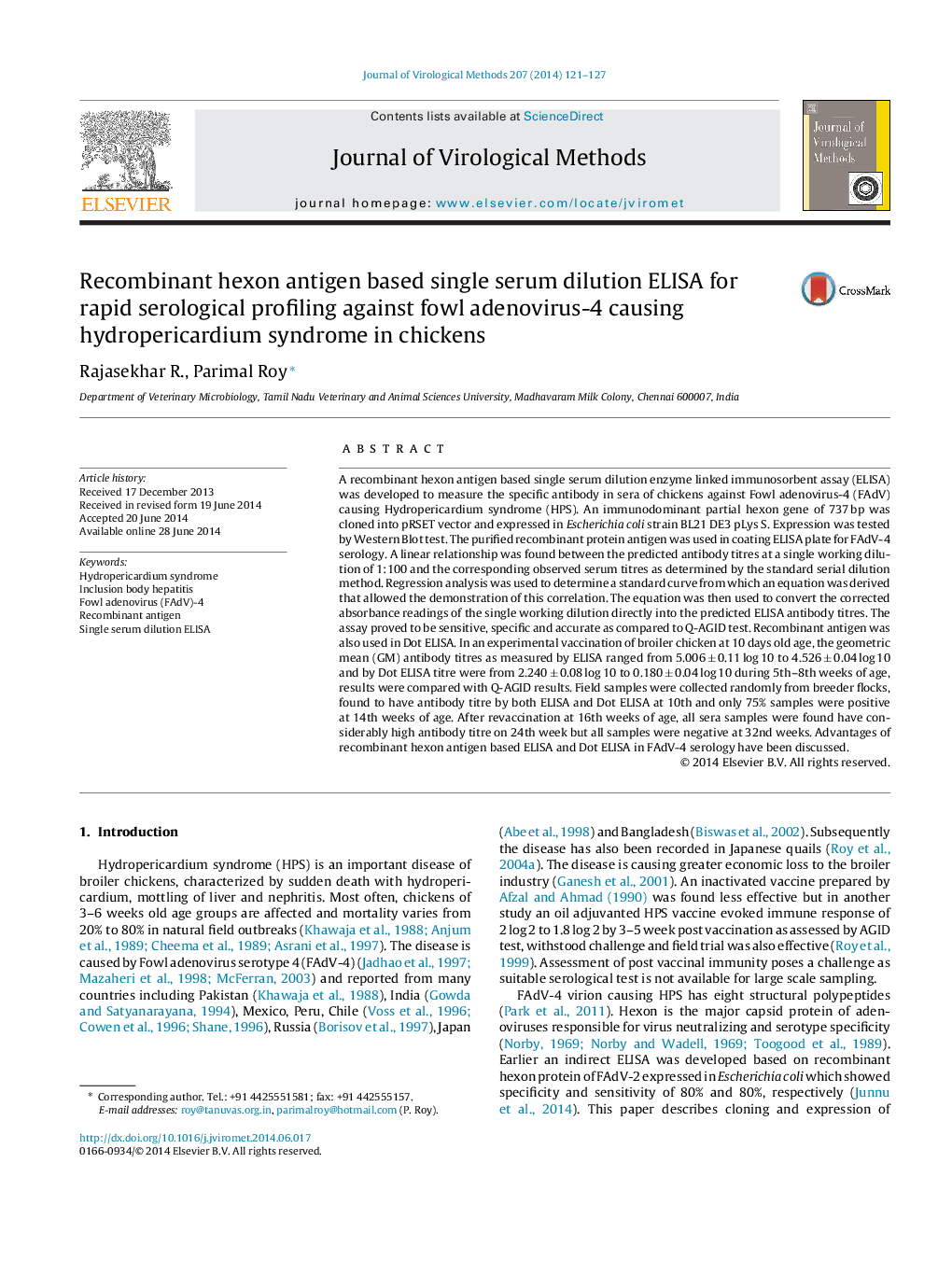| Article ID | Journal | Published Year | Pages | File Type |
|---|---|---|---|---|
| 6133599 | Journal of Virological Methods | 2014 | 7 Pages |
Abstract
A recombinant hexon antigen based single serum dilution enzyme linked immunosorbent assay (ELISA) was developed to measure the specific antibody in sera of chickens against Fowl adenovirus-4 (FAdV) causing Hydropericardium syndrome (HPS). An immunodominant partial hexon gene of 737 bp was cloned into pRSET vector and expressed in Escherichia coli strain BL21 DE3 pLys S. Expression was tested by Western Blot test. The purified recombinant protein antigen was used in coating ELISA plate for FAdV-4 serology. A linear relationship was found between the predicted antibody titres at a single working dilution of 1:100 and the corresponding observed serum titres as determined by the standard serial dilution method. Regression analysis was used to determine a standard curve from which an equation was derived that allowed the demonstration of this correlation. The equation was then used to convert the corrected absorbance readings of the single working dilution directly into the predicted ELISA antibody titres. The assay proved to be sensitive, specific and accurate as compared to Q-AGID test. Recombinant antigen was also used in Dot ELISA. In an experimental vaccination of broiler chicken at 10 days old age, the geometric mean (GM) antibody titres as measured by ELISA ranged from 5.006 ± 0.11 log 10 to 4.526 ± 0.04 log 10 and by Dot ELISA titre were from 2.240 ± 0.08 log 10 to 0.180 ± 0.04 log 10 during 5th-8th weeks of age, results were compared with Q-AGID results. Field samples were collected randomly from breeder flocks, found to have antibody titre by both ELISA and Dot ELISA at 10th and only 75% samples were positive at 14th weeks of age. After revaccination at 16th weeks of age, all sera samples were found have considerably high antibody titre on 24th week but all samples were negative at 32nd weeks. Advantages of recombinant hexon antigen based ELISA and Dot ELISA in FAdV-4 serology have been discussed.
Related Topics
Life Sciences
Immunology and Microbiology
Virology
Authors
Rajasekhar R., Parimal Roy,
